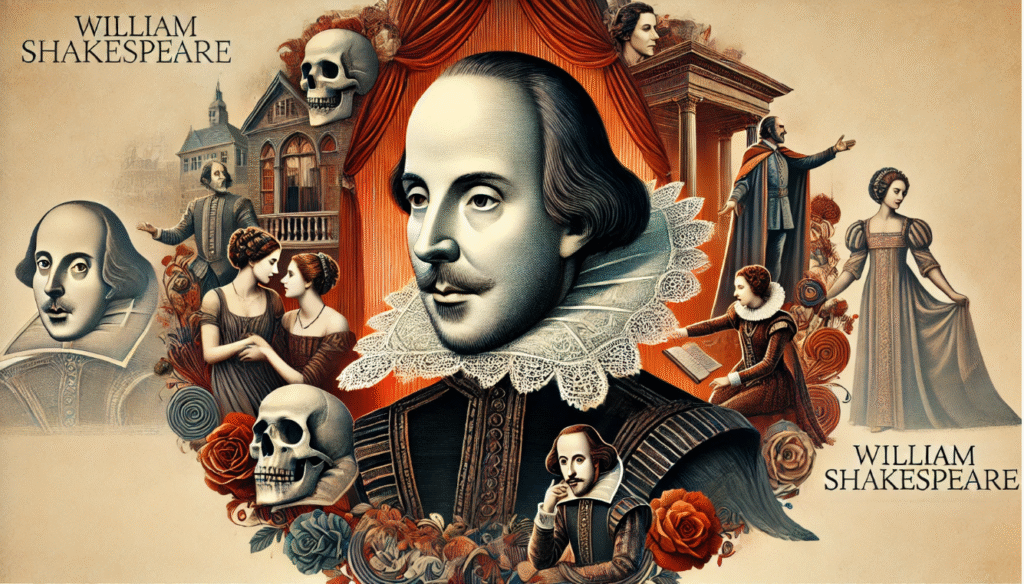
The Historical Significance of Shakespearean Plays: Understanding Their Impact on Literature, Culture, and Society
Imagine a world where the works of a single playwright continue to shape our language, literature, and culture more than 400 years after his death. That’s the power of William Shakespeare! 🌍 His plays have transcended time, influencing everything from modern theater to popular films, and even the way we communicate. But have you ever wondered about the historical significance of Shakespearean plays and how they’ve impacted the world we live in today?
In this article, we’re diving deep into how Shakespeare’s works went beyond the stage and became an essential part of not just literature, but also the very fabric of our society. Whether you’re a student, a literature lover, or simply curious about why these plays remain relevant, you’ll find practical insights that’ll help you appreciate the profound effects these works have had on history, culture, and modern storytelling. Keep reading to discover why Shakespeare’s legacy is more important now than ever before! 🎭✨
Table of Contents
Toggle1. Shakespeare’s Legacy: A Brief Historical Overview
William Shakespeare, often referred to as the “Bard of Avon,” is widely regarded as the greatest playwright in history. Born in 1564 in Stratford-upon-Avon, England, Shakespeare wrote 39 plays, 154 sonnets, and countless poems during his lifetime. 🎭 But why does his work still matter today, more than four centuries after his death?
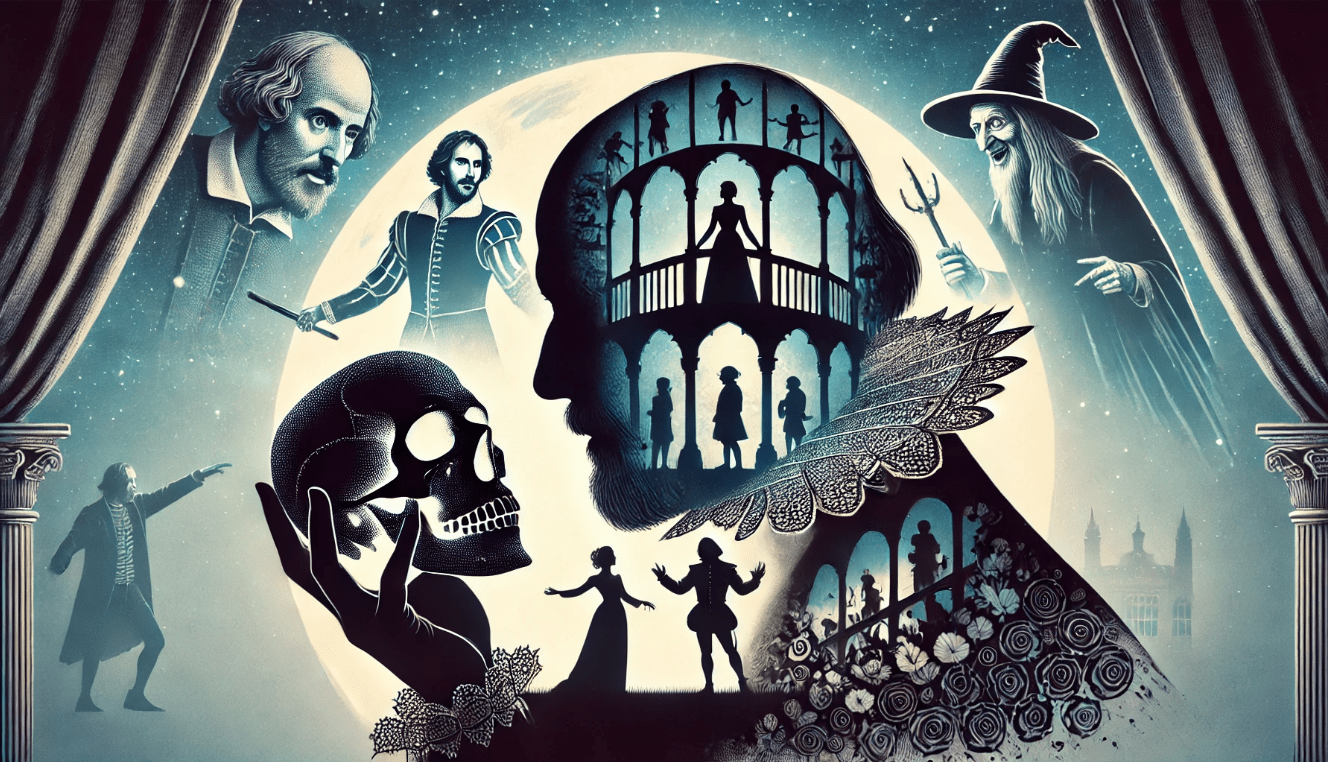
Shakespeare’s Influence on Language and Expressions
One of Shakespeare’s most enduring legacies is his contribution to the English language. He is credited with coining over 1,700 words, many of which are still in use today. Words like “bedazzled,” “eyeball,” and “swagger” were first introduced in his plays. These words and phrases are not just quirky additions—they shaped the way we express ourselves, both in everyday conversation and in literature. 📚
Revolutionizing Theatre and Storytelling
Shakespeare didn’t just tell stories; he revolutionized storytelling. He pushed the boundaries of dramatic structure by combining various genres—tragedy, comedy, and history—into intricate, engaging plays. His ability to explore complex human emotions, political intrigue, and societal issues in such a dynamic way made his work groundbreaking. Whether through the tragic downfall of Macbeth or the comic misunderstandings in A Midsummer Night’s Dream, Shakespeare made theatre a mirror for human nature. 🌟
A Timeless Influence on Writers and Artists
Shakespeare’s influence on writers, both past and present, cannot be overstated. His exploration of universal themes like love, jealousy, ambition, and betrayal resonated across generations. Modern playwrights and novelists, from Arthur Miller to Tony Morrison, have drawn inspiration from his characters and plots. In fact, some of today’s most famous works—such as West Side Story (a retelling of Romeo and Juliet)—are direct adaptations of Shakespearean plays. 🎬
2. The Impact of Shakespearean Plays on Literature
Shakespeare didn’t just write plays; he reshaped the landscape of literature in ways that still resonate today. His influence on the world of writing is profound, not just because of the sheer number of works he created, but because of how he changed the way stories were told and characters were developed. Let’s explore how his plays left a lasting mark on literature. 📚
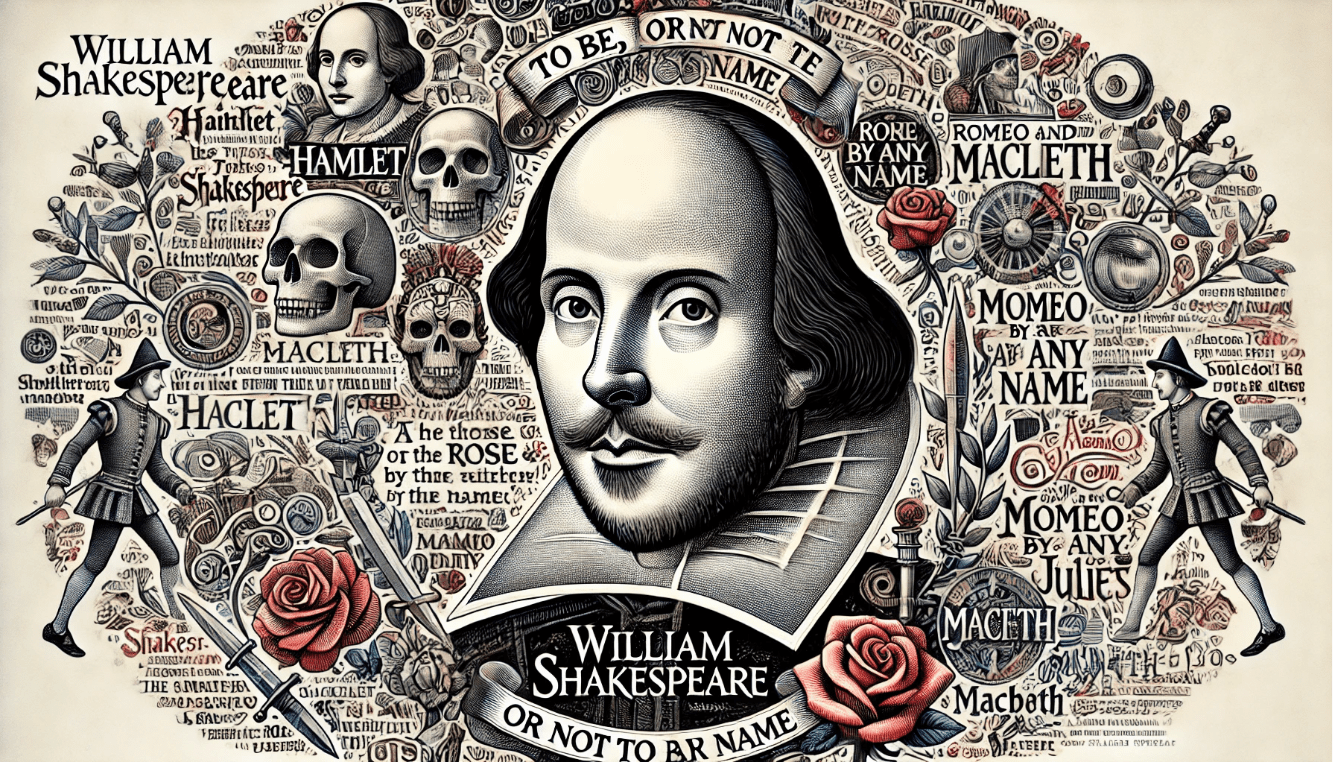
Revolutionizing Narrative Structures
Before Shakespeare, plays and stories were often simple, following predictable patterns. Shakespeare broke those molds. He introduced complex narratives with multiple layers, mixing tragedy, comedy, and historical events into a single work. Plays like Hamlet and King Lear pushed the boundaries of drama, showing that characters could be multi-dimensional, full of contradictions and internal struggles. By doing so, Shakespeare laid the groundwork for the modern storytelling that we see today, where plot twists, character development, and emotional depth are paramount. 🎭
Character Complexity and Psychological Depth
Shakespeare is credited with pioneering the idea of complex, psychologically rich characters. His protagonists, like Hamlet, Macbeth, and Othello, are not just heroes or villains; they are deeply human. They experience internal conflict, wrestle with morality, and often make decisions that lead to their downfall. This psychological depth was revolutionary at the time and has influenced countless works of literature, from classic novels to contemporary films. Readers today can relate to Shakespeare’s characters because their emotional journeys are universal. ❤️
Thematic Exploration That Resonates Across Time
Shakespeare’s plays are more than just stories—they explore the deepest aspects of the human experience. His themes of love, ambition, jealousy, power, and betrayal resonate across cultures and eras. For example, Romeo and Juliet is a timeless tale of love and tragedy, while Macbeth delves into the corrupting nature of unchecked ambition. These universal themes laid the foundation for modern literature, as contemporary authors often tackle similar subjects in their works. Shakespeare showed that stories about human emotions and conflicts are as relevant today as they were centuries ago. 🌍
Shakespeare’s Influence on Writing Styles
Shakespeare’s distinctive writing style, with its blend of poetic language and everyday speech, changed how writers approached dialogue. His clever use of iambic pentameter, metaphors, and puns brought a new level of sophistication to literary expression. Modern authors often draw from Shakespeare’s playbooks for creating memorable characters, sharp dialogue, and emotionally charged scenes. Without Shakespeare, we might not have iconic works like The Great Gatsby or The Catcher in the Rye. ✍️
3. Cultural and Societal Impact of Shakespeare’s Works
Shakespeare’s plays did more than entertain—they helped shape the cultural and societal landscape in ways that continue to affect us today. From popular culture to education, his works have left a deep and lasting imprint on society. Let’s explore how Shakespeare’s influence extends beyond the stage. 🌍
Shakespeare in Popular Culture
One of the most powerful aspects of Shakespeare’s legacy is how his works have been adapted and reimagined in popular culture. His stories have been retold in countless ways, from movies to music and television. For example, Romeo and Juliet inspired films like West Side Story, while Hamlet influenced modern psychological thrillers. Even today, themes and characters from his plays regularly appear in modern media. This constant reworking of Shakespeare’s plays shows how his ideas remain relevant and resonate with audiences around the world. 🎬
Shakespeare’s Plays as Cultural Touchstones
Shakespeare’s plays also serve as cultural touchstones, helping us reflect on societal values and issues. His exploration of power, justice, love, and betrayal speaks to fundamental human concerns. For example, Macbeth addresses the dangers of unchecked ambition, while The Tempest reflects on the themes of colonialism and personal redemption. By studying his works, we gain insights into the historical context of Shakespeare’s time while also recognizing how his themes speak to contemporary struggles. 🌱
The Role of Shakespeare in Education

Shakespeare’s influence on education is undeniable. His plays are a staple in school curricula worldwide, helping students understand complex literary concepts, historical contexts, and moral dilemmas. Beyond literary analysis, studying Shakespeare fosters skills in critical thinking, empathy, and language. His works are a bridge between the past and present, offering valuable lessons for modern society. 🎓
By examining Shakespeare’s plays, students learn not just about Elizabethan England but also about universal themes that transcend time and geography. His exploration of human nature in plays like Othello and King Lear allows students to gain a deeper understanding of both themselves and the world around them. ✨
Shakespeare’s Impact on Social Issues and Politics
Shakespeare’s works also serve as a lens through which we can examine social issues and politics. His history plays, like Julius Caesar and Richard III, highlight power struggles and political intrigue, reflecting the turbulent political climate of his time. But beyond history, Shakespeare’s works have also been used to address modern political questions, offering timeless insights into leadership, justice, and the consequences of political decisions. ⚖️
4. Shakespearean Plays and Human Nature: A Timeless Mirror
One of the most powerful aspects of Shakespeare’s plays is their ability to explore the complexities of human nature. His works go beyond simple plots and characters—they offer a mirror to our emotions, motivations, and flaws. For centuries, audiences have found themselves reflected in his stories, making his plays timeless and universally relatable. Let’s take a closer look at how Shakespeare holds up a mirror to the human condition. 🪞
Exploring Universal Themes
At the core of every Shakespearean play are themes that speak directly to our shared human experience. Whether it’s love, jealousy, ambition, or revenge, these emotions transcend time, culture, and geography. Take Romeo and Juliet, for example—its themes of passionate love and tragic fate still resonate with modern audiences. Similarly, Macbeth explores the destructive power of unchecked ambition, a theme that remains relevant in today’s competitive world. These universal themes allow us to connect with the characters and their struggles, regardless of when or where we live. 🌍❤️
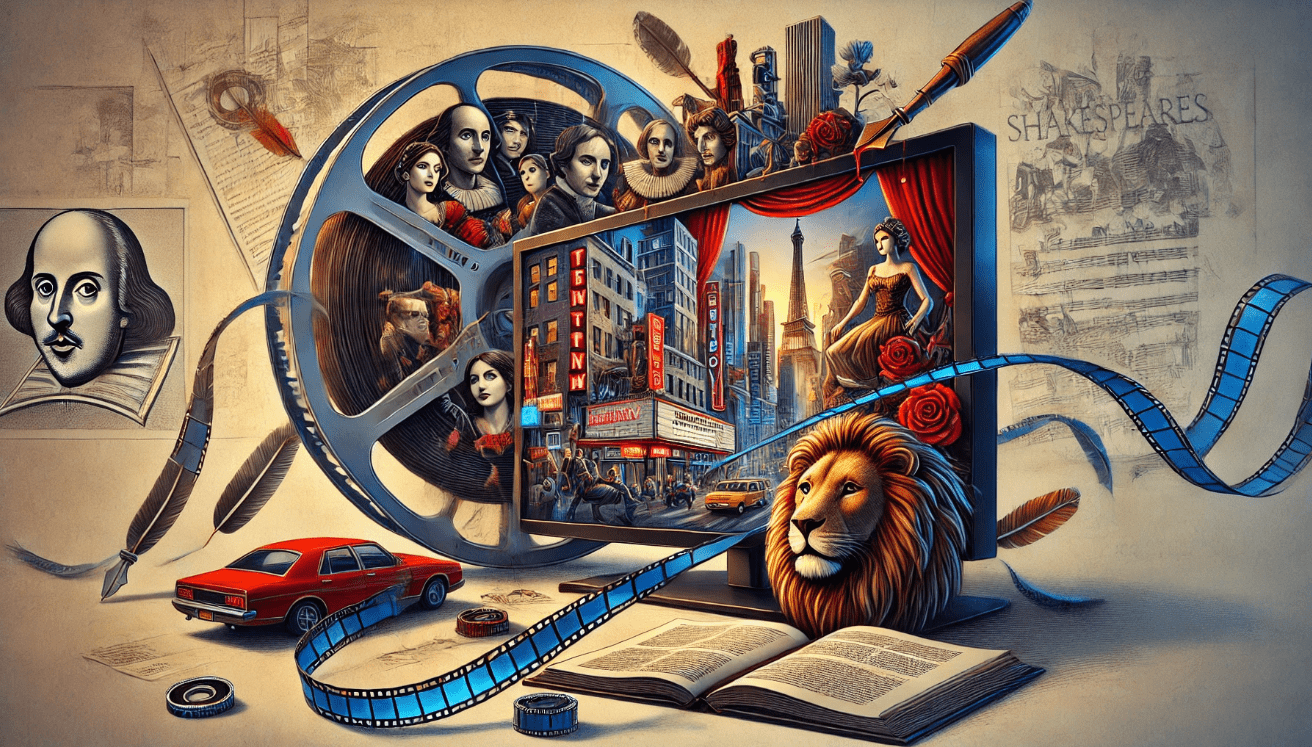
The Complexity of Shakespeare’s Characters
Shakespeare’s characters are often multi-faceted and flawed, making them feel incredibly real. They are not simply heroes or villains; they are complex individuals with internal conflicts. Hamlet, for instance, is a prince torn between action and inaction, overwhelmed by his thoughts on life and death. Macbeth, driven by ambition, faces the consequences of his own dark desires. Othello’s jealousy leads to tragic outcomes, demonstrating how emotions can cloud judgment. These characters mirror our own struggles with identity, morality, and decision-making. They remind us that our flaws don’t define us, but how we respond to them does. 🤔
Human Emotions in the Face of Power
Many of Shakespeare’s plays explore the impact of power on individuals and societies. King Lear presents a ruler whose pride and arrogance blind him to the love of his daughters, leading to his downfall. In Julius Caesar, the power struggle and betrayal among friends lead to the tragic assassination of Caesar. These plays raise important questions about how power affects human behavior and decisions. Shakespeare’s portrayal of these power dynamics forces us to reflect on how we, too, handle power, whether in our personal lives or in the broader context of society. ⚖️
The Psychological Depth of Shakespeare’s Work
Shakespeare’s understanding of human psychology was ahead of his time. His characters often experience deep inner turmoil, making them feel relatable on a personal level. In Macbeth, the protagonist’s descent into madness highlights the psychological effects of guilt and paranoia. In Hamlet, we witness a young man grappling with existential questions about life, death, and morality. These psychological portrayals were revolutionary for their time and continue to inspire modern works in psychology, literature, and even film. Shakespeare shows us that our emotions and thoughts shape who we are, often in ways we don’t fully understand. 🧠
5. Practical Ways to Engage with Shakespeare Today
Shakespeare’s works might seem daunting at first, but there are plenty of ways to dive into his plays in a way that’s fun, engaging, and even practical for modern life. Whether you’re a beginner or looking to revisit his plays, here are some practical tips to help you get started. 📖✨
1. Start with the Most Accessible Plays
Not all of Shakespeare’s plays are equally complex. If you’re new to his works, begin with plays that are easier to follow, like A Midsummer Night’s Dream, Twelfth Night, or Romeo and Juliet. These comedies and tragedies have straightforward plots and characters that are easier to connect with. Once you’re comfortable, you can dive into the more intricate tragedies like Macbeth or Hamlet. Starting with familiar stories makes the language and themes less overwhelming. 🏰
2. Use Modern Translations and Annotated Editions
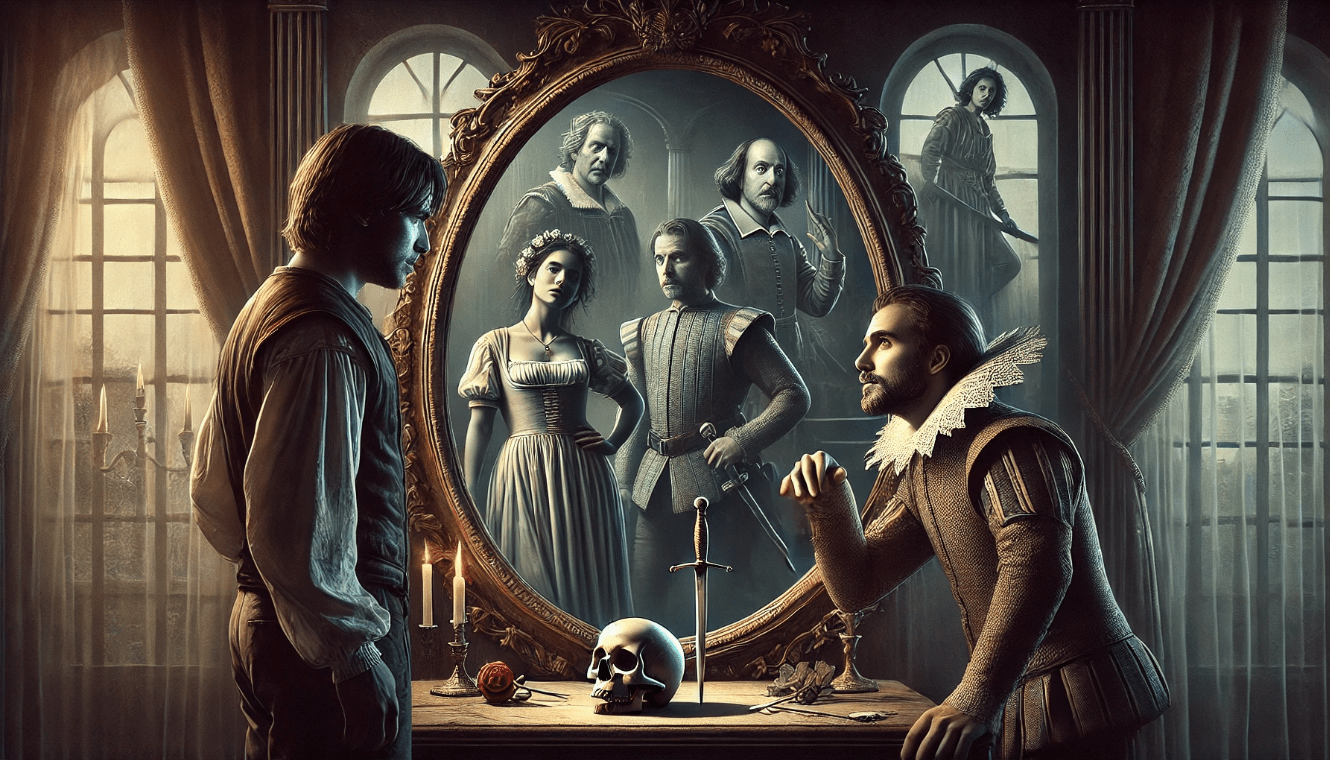
Shakespeare’s Early Modern English can be a barrier for many readers. But don’t let that stop you! Modern translations or annotated versions of his plays can help you understand the text while preserving its essence. These versions include explanations for unfamiliar words and phrases, helping you grasp the meaning without losing the beauty of the original language. A quick search for “Shakespeare for beginners” will also provide numerous resources tailored to new readers. 📚
3. Watch Live Performances or Movie Adaptations

One of the best ways to experience Shakespeare is through performance. Watching a live play or movie adaptation helps bring the characters and themes to life. Many of Shakespeare’s plays have been adapted into modern settings, making them more relatable. For instance, The Lion King is based on Hamlet, while 10 Things I Hate About You takes inspiration from The Taming of the Shrew. Many theaters and streaming platforms offer live performances of Shakespeare’s works, so there’s no excuse not to enjoy them! 🎬🎭
4. Join a Book Club or Discussion Group
If you want to deepen your understanding of Shakespeare’s plays, consider joining a book club or discussion group. Many communities and online platforms have groups dedicated to reading and analyzing Shakespeare. Engaging with others who share your interest can help you see different interpretations of the text and encourage thoughtful conversations about its themes and characters. Whether in person or online, discussions can provide new insights and make the experience more enjoyable. 💬
5. Engage with Shakespeare Through Digital Platforms
In today’s digital world, there are numerous ways to explore Shakespeare’s works from your phone or computer. Websites like Shakespeare’s Globe and Project Gutenberg offer free access to his plays, while apps like Shakespeare Pro and Shakespeare’s Sonnets provide easy access to annotated texts. If you prefer listening, podcasts or audiobook versions can help you experience his works while on the go. 🎧📱
6. Perform or Read Aloud
Shakespeare’s plays were meant to be performed, not just read. So, why not read them aloud or act out your favorite scenes? This helps you better understand the rhythm of the language and the emotions behind the words. If you’re feeling creative, you can even get friends or family involved in a mini performance! Reading aloud also helps you connect with the material on a deeper level and gives you a sense of what it would be like to see the play live on stage. 🎤
Shakespeare’s plays have stood the test of time, not just because of their poetic language or historical significance, but because they hold a mirror to the complexities of human nature. From love and ambition to jealousy and betrayal, his works explore universal themes that continue to resonate with audiences today. 🌍
By understanding the historical significance of Shakespearean plays, we can appreciate how deeply they’ve influenced literature, culture, and society. His characters, rich with psychological depth and emotional complexity, reflect the very struggles we face in our own lives. Through his innovative storytelling, Shakespeare not only transformed theatre but also laid the foundation for modern literature and drama. 🎭
Frequently Asked Questions (FAQs)
1. Why is Shakespeare still relevant today?
Shakespeare remains relevant because his plays explore universal themes such as love, power, betrayal, and ambition—emotions that people continue to experience today. His characters are psychologically complex, making them relatable across generations. His influence on language, literature, and popular culture also keeps his works alive and impactful.
2. What are some key themes in Shakespeare's plays?
Shakespeare’s plays cover timeless themes such as love, revenge, jealousy, power, and fate. These themes resonate deeply with modern audiences because they touch on core aspects of human nature, making Shakespeare’s works relatable and meaningful even today.
3. How did Shakespeare influence modern literature?
Shakespeare revolutionized narrative structure, character development, and dialogue in literature. His works introduced complex characters, multi-layered plots, and new genres. Many modern writers, playwrights, and filmmakers have drawn inspiration from his themes and storytelling techniques.
4. What makes Shakespeare’s characters so powerful?
Shakespeare’s characters are powerful because they are multidimensional and psychologically complex. They face internal conflicts and moral dilemmas that make them feel real. Whether heroes or villains, these characters reflect human nature, making them relatable across time.
5. How did Shakespeare impact the English language?
Shakespeare enriched the English language by coining over 1,700 words and phrases, many of which we still use today. He introduced new expressions, metaphors, and ways of structuring sentences, significantly influencing the development of modern English.
6. Why are Shakespeare’s plays important in education?
Shakespeare’s plays are important in education because they offer deep insights into human nature, history, and literature. They also enhance critical thinking, empathy, and language skills, making them a vital part of school curricula around the world.
7. How can I start reading Shakespeare’s plays as a beginner?
To start reading Shakespeare, begin with his more accessible plays like Romeo and Juliet, A Midsummer Night’s Dream, or Twelfth Night. Use annotated editions or modern translations to make the language easier to understand, and consider watching performances or adaptations to help bring the plays to life.
8. How has Shakespeare influenced popular culture today?
Shakespeare’s influence on popular culture is immense. His stories and characters have been adapted into countless movies, TV shows, and books. Modern retellings of his plays, like West Side Story (based on Romeo and Juliet), show how his work continues to shape storytelling in all forms of media.
